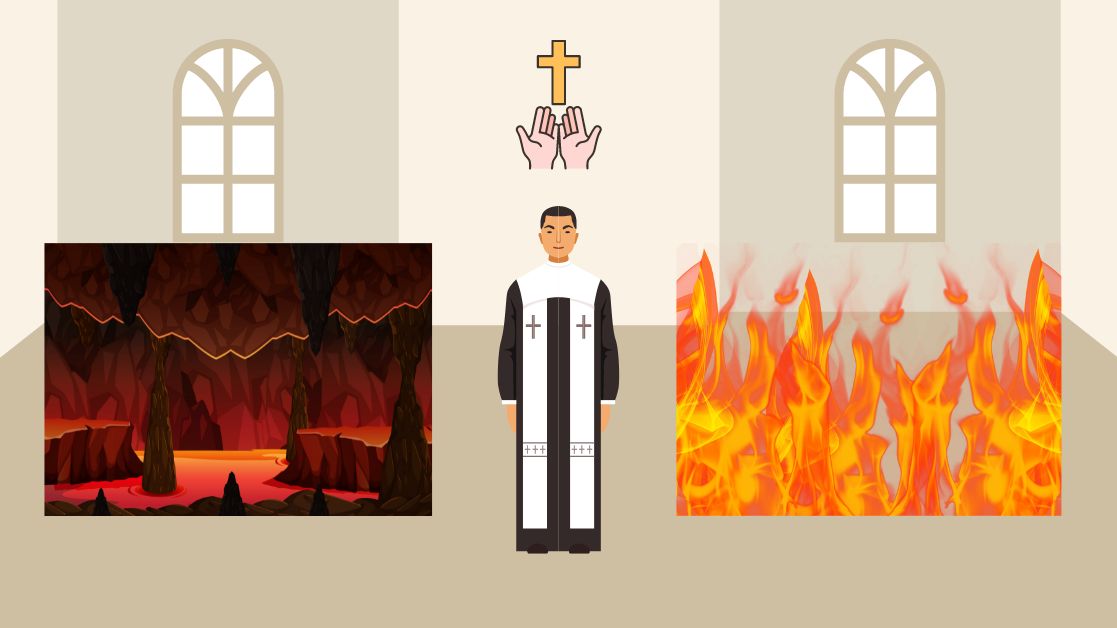In Christian theology, hell represents the ultimate destination for those who persist in unrepentant sin and is believed to be the dwelling place of the devil and his demonic followers. This realm is depicted as a site of everlasting punishment, marked by torment, darkness, a sense of separation from God, and ultimate destruction.
The concept of hell has intrigued and inspired countless discussions throughout history. It serves as a reminder of the consequences of rejecting God’s grace and persisting in unrepentant sin.
While the concept of hell can be traced back to the Old Testament, the New Testament provides more explicit and vivid descriptions of its nature and significance.
In this article, we will delve into the nature of hell and its significance as conveyed through various biblical verses, exploring different interpretations and theological implications.
The Nature of Hell
In the pages of the Bible, the term “hell” is derived from several Hebrew and Greek words, each carrying specific connotations regarding the afterlife. Sheol, mentioned in the Old Testament, portrays a shadowy realm where both righteous and unrighteous souls reside after death.
According to Psalm 9:17, the wicked go to the land of the dead, as do all nations who neglect God. It does not, however, expressly depict anguish or retribution.
Moving into the New Testament, Hades maintains similarities with Sheol, but it emphasizes a more apparent distinction between the righteous and the unrighteous. Luke 16:23 recounts the parable of the rich man and Lazarus, where the rich man finds himself in Hades, in torment, while Lazarus rests in Abraham’s bosom.
In Mark 9:43-44, Jesus issues a solemn warning, advising that if one’s hand becomes a cause of stumbling, it would be better to remove it, even if it leaves a person crippled. This extreme action is preferable to the alternative of entering hell with two hands, where the unquenchable fire burns eternally.
Eternal Punishment and Judgment
The Bible has recurring messages regarding the eternal consequences of one’s actions and the importance of God’s righteous judgment. Matthew 25:46 declares that the unrighteous will face eternal punishment, while the righteous will receive eternal life. This verse underscores the stark contrast between the destinies of the righteous and the wicked.
The book of Revelation vividly portrays the lake of fire as the “second death,” where those not found in the Book of Life are cast (Revelation 20:14-15). This passage highlights the finality of the judgment, sealing the fate of those who persistently reject God’s salvation.
Theological Interpretations
Over time, Christian denominations have developed different theological interpretations of hell, leading to distinct perspectives on its nature and purpose. Some adhere to the traditional view of eternal conscious torment, pointing to verses like Revelation 14:11, which speaks of eternal torment for those who worship the beast and its image.
Others adopt the annihilationist perspective, as supported by 2 Thessalonians 1:9, which speaks of everlasting destruction for those who do not know God. This view posits that the wicked will be annihilated and cease to exist after facing God’s judgment.
Universalism, on the other hand, suggests that all souls will eventually be reconciled with God. Romans 5:18 asserts that as one trespass led to condemnation for all people, similarly, one righteous act led to justification and life for all people. This concept posits that hell is a temporary purifying process rather than a permanent punishment.
Conclusion
The Bible’s depiction of hell presents a multifaceted and thought-provoking subject, inspiring various interpretations and theological discussions. Regardless of the specific viewpoint one adopts, the concept of hell serves as a solemn reminder of the consequences of rejecting God’s grace and persisting in unrepentant sin.
Studying the biblical teachings about hell encourages people to seek spiritual growth, compassion, and a deeper relationship with the Divine. Understanding the significance of hell in the context of God’s righteous judgment can lead us to a life of righteousness and virtue motivated by the pursuit of eternal life with the Creator.




